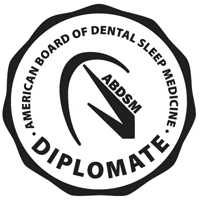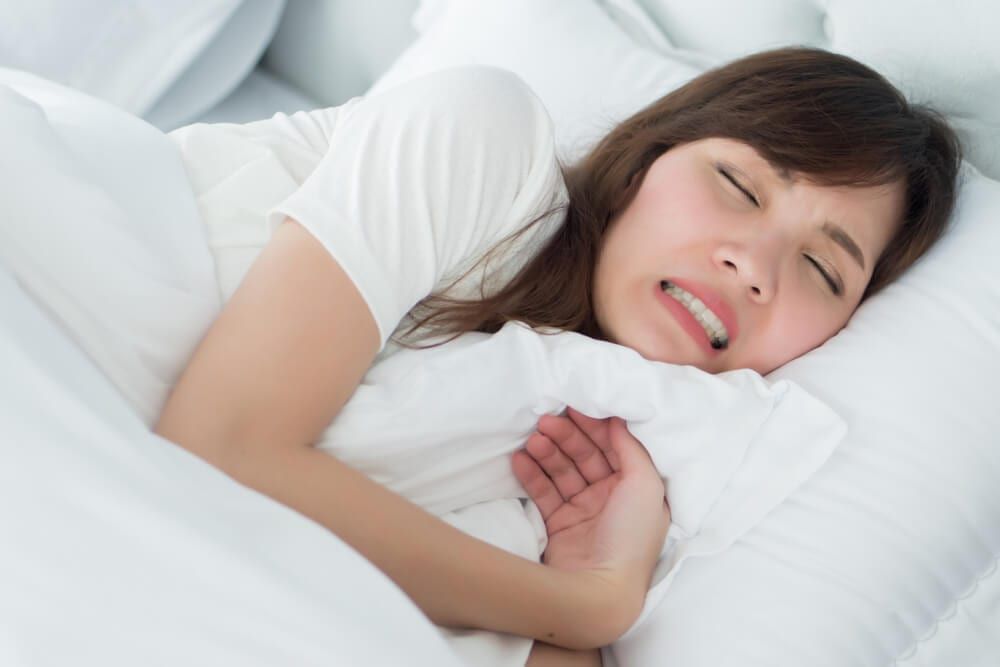Teeth grinding is a common complaint and a habit that can cause significant dental and health problems.
What is bruxism?
Bruxism is the medical term used to describe grinding, clenching, or gnashing your teeth. Some people perform these habits during their waking hours, but bruxism most often occurs while you’re asleep.
Many men and women live with bruxism, but some have no idea they are experiencing the condition. Like snoring or sleep apnea, your sleep partner or family members may have a better idea of your nighttime habits than you do.
How do I know if I’m grinding my teeth at night?
In addition to reports of teeth grinding, symptoms of bruxism include:
- Jaw pain
- Clicking or popping of jaw joints
- Dull headache
- Sensitive or loose teeth
- Sore or tender gums
- Aching in your ear, shoulder, or neck
- Anxiety or depression
Muscle reprogramming exercises have shown great success in reducing nighttime clenching and grinding. Oral appliances such as jaw stabilizing devices, muscle reprogramming orthotics, night guards and mandibular advancement devices protect the joint and teeth from excessive wear and breakdown and often contribute to reduction in the habit.
What are the risks of teeth grinding?
Severe grinding and clenching have a negative effect not only on your teeth and the supporting structures (bone and gums) but can also have detrimental effects on additional structures.
Hearing loss, ringing and other ear symptoms are often attributed to clenching/grinding of the teeth.
TMJ joint pain and movement limitations can also result from excessive grinding/clenching.
Additionally, your appearance may change as a result of facial muscle changes and teeth height reduction. There have been reports that Bell’s palsy, a partial facial paralysis may be affiliated with bruxism (clenching and/or grinding).
If you wear away your tooth enamel, your teeth are at risk of developing cavities. Grinding or clenching can also change the alignment of your bite, placing undue pressure on surrounding teeth and the underlying bone. Damage to your jaw can lead to long-term pain as well as difficulties with speech and eating habits.
What can I do to stop grinding my teeth?
One of the most frustrating aspects of teeth grinding is the fact that it occurs while you’re asleep. That leaves you with little control over the habit.
Muscle reprogramming exercises have shown great success in reducing nighttime clenching and grinding. Oral appliances such as jaw stabilizing devices, muscle reprogramming orthotics, night guards and mandibular advancement devices protect the joint and teeth from excessive wear and breakdown and often contribute to reduction in the habit.
The material of the oral appliance protects your teeth from the effects of grinding. The device also helps hold your jaw in proper positioning as you sleep, preventing you from placing excess pressure on your teeth or jaws.
Do you suffer from Bruxism?
- Teeth grinding or clenching, which may be loud enough to awaken your partner.
- Teeth that are worn down, flattened, fractured, or chipped.
- Worn tooth enamel, exposing deeper layers of tooth.
- Increases tooth sensitivity.
- Muscle tightness.
- Earache – because of severe jaw muscle contractions.
- Headache.
- Chronic facial pain.




